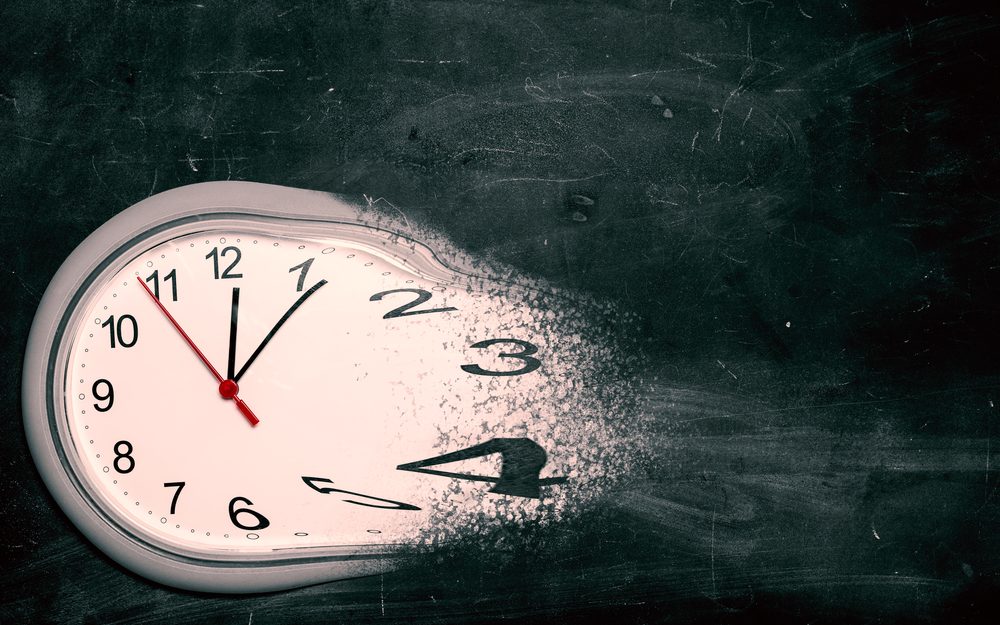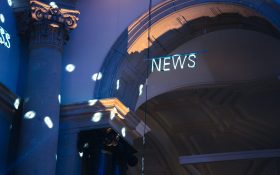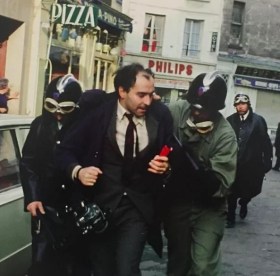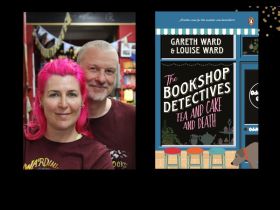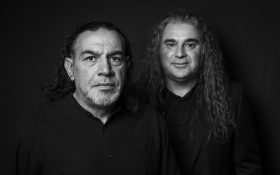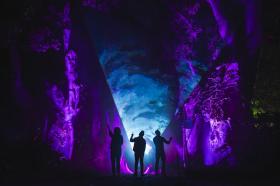It was the great imaginist Albert Einstein, who suggested time and space were intertwined in an infinite fabric stretching across the universe, curving stylishly around every planetary body and embracing all matter with a snuggly hug.
Apart from rock star creative thinking, astrophysics and inclusive arts have two other things in common – time and space. Except ours is a weighted blanket and the bodies are those of d/Deaf and Disabled arts practitioners, philosophers and paying guests. Disabled arts leaders pretty much agree that time and space are the fundamental markers essential for us to do our job well. No one in astrophysics believes in a flat earth, yet society still expects Disabled people to operate on an abled linear.
A meeting of stellar thinkers and doers from the national Disabled and d/Deaf arts community came together for a hypothetical chinwag about these values at Radical Access: The Future of Access in the Arts on 5 July. The topic in question was: ‘In your future, what does an inclusive arts industry, practice or experience look, sound and/or feel like?’
Thinking ahead in radical access
Presented by Melbourne Fringe in partnership with Arts Access Victoria and with support from the State Library, Melbourne, Radical Access is a 10-year strategy to ensure cultural equity for Disabled and d/Deaf artists. The radically minded expert panel at this event included poet Andy Jackson, audiovisual performance artist Dr Melinda Smith OAM, author and Deaf musician Asphyxia, and media maker Alistair Baldwin. Moderated by artist and writer Fayen d’Evie and hosted by author and Melbourne Fringe’s Access Adviser Carly Findlay, the discussion opened with the screening of a segment from Assembly for the Future’s film The Last Disabled Oracle. Alice Wong’s keynote speech from the year 2029 revealed the looming presence of gene editing and ableist-biased technology.
With Wong’s meteoric message of possible Disability annihilation lingering in the room, the panellists offered a response to what sort of world they’d like the contemporary future, i.e. now, to possibly stem the world of Alice 2029. Asphyxia’s reply from the perspective of being a Deaf artist in a hearing world, perhaps summed up the feeling of many Disabled people: ‘Before I had to make myself fit in the world, especially the arts. Now it’s my world. I see a change in attitudes and we’re valued members of society.’ Jackson added he’d prefer the world to be ‘safe – materially, resources and community; interconnected, rather than separate in a crisis; and flexible, as access needs vary’.
It can be scary to think about society and disability in 40 years’ time, so Radical Access wants us to do it now, rather than later. When asked who shoulders this responsibility, Smith, an audiovisual and performance artist who mentors and consults around disability access, replied, ‘People with disability are behind in “time and space”. We have to meet abled deadlines and get asked to be interviewed on short notice. I want to make time to do it the way it needs.’ This is perhaps what’s known as “crip-time” in the fabric of universal access. It’s not about moving planets to fit with gravity, but expanding space so things that matter can move.
To much audience glee, Smith added, ‘We say “no” to the deadlines! We create what we want, to our schedule, and arts funding is based on merit, not grant-writing ability.’ Who in the arts wouldn’t agree to that?
One of the ways we can improve attitudes to disability is by allowing Disabled creatives to make content that isn’t just in the background of abled artists and projects. Film and television writer Alistair Baldwin wants to create ‘a new generation of divas and nightmares, directors and actors that are flexible, funny and sexy’. Disabled and d/Deaf people should be all around the arts industry for it to be truly inclusive. As Jackson put it, ‘Who do we see in performing arts? Well, who’s behind that?’
It’s socially acceptable to see a Disabled and/or d/Deaf person on stage presenting work about being disabled, but it is getting radical when we try to name a Disabled or d/Deaf industry film director, more than one or two professional Disabled musicians (outside of the obligatory “disadvantaged” teen starlet on The Voice) or who from the Disabled community is nominated at this year’s Logies? Spoiler alert: a celebrity who’s just “come out” with a mental illness to explain away a civil crime, doesn’t cut it.
Read: Complicating Vietnamese diaspora stories for the better
Universal access is an ideal where every person, inclusive of disability/impairment, physicality, language, race, gender and/or economic reality, can participate in and contribute to things like education, work, leisure and culture. The good thing about universal access around disability is that even non-(currently)-Disabled people benefit from curvy architecture, more fresh air, natural light and no frenetic canned music in the supermarket.
In the arts, dignified inclusion means grant funding with budget line items specifically for access for artist/s, staff and audiences, another for Auslan interpreters. It means quiet rooms designed for adults, not stocked with toys for five-year-olds. It’s permanent ramps to stages, greenrooms and crying rooms. It’s a venue drinks bar with a lowered section. How many of us have had to silently deal with the fallout of watching a show that unexpectedly reminded us of our trauma? Will the music industry ever grow out of its toddler-esque need for cute things? We have to cheer on d/Deaf music who have bypassed it all together and created their own music industry.
It’s not far-fetched to say there’s a whole demographic of people out here with complex mental health realities yet to be included in any conversation about contemporary access and inclusion. On that topic, can we just agree that mental health is not a “well-being” asset when you live with a mental illness disability. A note for arts organisations – people can’t hopscotch their way out of not being afforded academic privilege, or talk to colleagues about workplace issues if they don’t have a job.
Disabled artists and leaders are asking if there’s disability in a fully accessible world, where disability is reduced by better structures, genetic engineering and biased technology. Asphyxia believes that access should be an equal road, where the aim isn’t to limit or reduce the amount of Disabled and d/Deaf people on it, but increase the value of lived experience. We need to monitor and manage technology like AI, to ensure all the people from our cultural past do not vanish in a quest for a “perfect” modified future.
As Wong put it, Disabled people ‘live in defiance with joy of radical acceptance’. Einstein had another quote relative to the situation: ‘Time and space are not conditions in which we live, but modes by which we think.’
The future of inclusion isn’t about finding ways to eliminate disability with better access, but to challenge the way society views disability struggle as a deficit. As Jackson so perfectly put it, in actual fact, ‘leadership is in that struggle’. Disabled and d/Deaf people are crafting the sort of world in which we can all learn it’s OK and universally excellent to be radical.
This writer attended Radical Access: The Future of Access in the Arts event at the State Library of Victoria on 5 July, held as part of Melbourne Fringe’s Radical Access program.
This article is published under the Amplify Collective, an initiative supported by The Walkley Foundation and made possible through funding from the Meta Australian News Fund.
